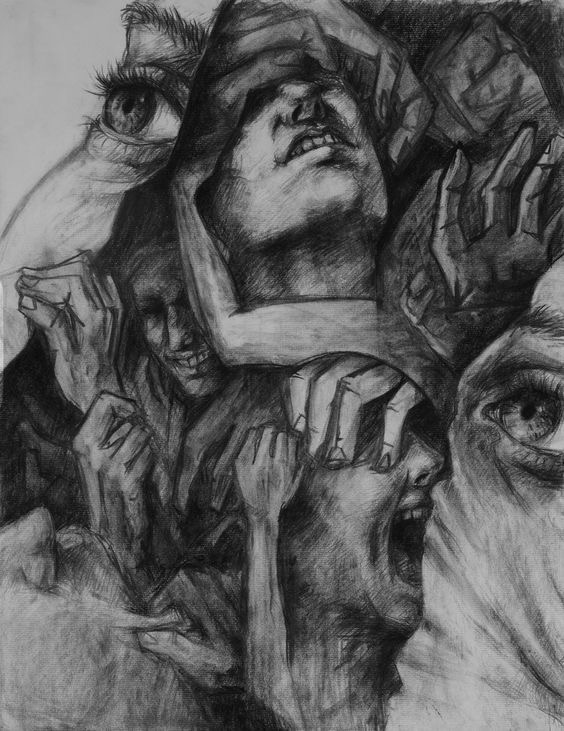
Where Justice Fails, Humanity Trembles: Gender-Based Violence in Conflict Zones
War does not only scar the land — it wounds the soul of nations. In conflict zones across the world, as buildings crumble and communities vanish, another, quieter war persists — one waged against women and girls whose bodies become battlefields. Amidst the smoke of destruction and the silence of fear, gender-based violence festers, concealed beneath the debris of broken systems and unspoken trauma. The cries of survivors echo faintly through the corridors of power, pleading for justice that rarely comes.
The United Nations (UN) estimates that one in three women globally will experience physical or sexual violence in their lifetime, with that risk doubling in conflict and post-conflict settings. In regions ravaged by war, sexual violence is not incidental — it is weaponized. UN Secretary-General António Guterres declared before the Security Council: “When the bodies of women and girls are turned into instruments of war, humanity itself is torn apart. Peace cannot exist where justice is denied.”
The UN Security Council Resolution 1325, adopted in 2000, recognized the disproportionate impact of conflict on women and called for their participation in peace processes. Yet, twenty-five years later, implementation remains inconsistent and often symbolic. UN Women reports that Fewer than 10% of peace negotiators worldwide are women, perpetuating a cycle in which those most affected remain excluded from decisions that shape their futures.
In 2025, the Office of the Special Representative of the Secretary-General on Sexual Violence in Conflict (SRSG-SVC) documented a resurgence of targeted gender-based attacks in regions such as Sudan, the Democratic Republic of Congo, and Myanmar. Survivors described patterns of organized sexual assault designed to terrorize civilian populations and erode community structures. These acts, often systematic, violate international humanitarian law and may constitute war crimes.
During an address to the UN General Assembly, Pramila Patten, the UN’s Special Representative on Sexual Violence in Conflict, warned: “The use of rape as a weapon of war persists not because it is unstoppable, but because it remains unpunished. Impunity has become the enemy of peace.” Her words resound as a chilling indictment of global complacency.
The United Nations High Commissioner for Refugees (UNHCR) reports that displaced women and girls are at Acute risk of exploitation during flight and in camps. Overcrowded shelters, insufficient security, and limited access to justice perpetuate cycles of abuse. In many cases, survivors are silenced by stigma, fear, or lack of protection, rendering their suffering invisible to the international community.
The Human Rights Council continues to urge member states to integrate gender-sensitive protection frameworks into humanitarian response plans. “Protection cannot be reactive; it must be pre-emptive,” stated Ambassador Nazhat Shameem Khan, President of the Council, emphasising that early prevention mechanisms and survivor-centered policies are critical to breaking systemic patterns of abuse.
Across conflict zones, local activists and humanitarian organizations operate in impossible conditions to provide aid and documentation. Yet, without sustained international support, these efforts remain fragmented. The United Nations Development Programme (UNDP) and UN Women have launched joint initiatives to provide trauma counseling, vocational training, and legal aid for survivors, reaffirming that recovery is inseparable from empowerment.
Media and Information Literacy (MIL) education has also emerged as a vital instrument in dismantling stigma and misinformation surrounding sexual violence. By empowering communities to challenge harmful narratives, UNESCO underscores the role of media literacy in fostering accountability and amplifying survivor voices.
However, the journey toward justice remains fraught. Many survivors face not only the trauma of assault but also institutional neglect. Courts often lack the capacity or political will to prosecute perpetrators, particularly when offenders are members of armed groups or state forces. The International Criminal Court (ICC) has prosecuted only a limited number of gender-based crimes, revealing the chasm between moral outrage and legal reality.
In an emergency debate at the UN Security Council, Ambassador Linda Thomas-Greenfield of the United States declared: “Gender-based violence in conflict zones is not collateral damage. It is a deliberate act of domination and erasure — and our silence is its accomplice.” Her words encapsulate a shared international guilt that transcends borders and ideologies.
The social and economic consequences of conflict-related sexual violence extend for generations. Survivors, often ostracized by their communities, face poverty, health complications, and loss of educational opportunities. The World Health Organization (WHO) emphasizes that trauma recovery requires integrated mental health support — a service still inaccessible to most survivors in conflict-affected regions.
Even where justice mechanisms exist, the path to reparation is perilous. The Office of the High Commissioner for Human Rights (OHCHR) calls for survivor-centered approaches that prioritize healing, confidentiality, and community reintegration over mere legal formalities. As Michelle Bachelet, former UN High Commissioner, once stated: “True justice is not measured in verdicts, but in the restoration of dignity.”
Yet, amid despair, there is resistance. Women’s organisations from Ukraine to Ethiopia, from Colombia to Yemen, continue to document abuses, mobilise advocacy, and demand accountability from national governments and international courts. Their courage stands as a testament to resilience in the face of unspeakable suffering.
As the world lauds progress and peace, the silence of survivors reverberates as a moral failure of humanity. The UN Secretary-General solemnly reminded delegates: “Peace built on denial is peace built on sand. Until every survivor’s voice is heard, our work remains unfinished.”
Post a comment